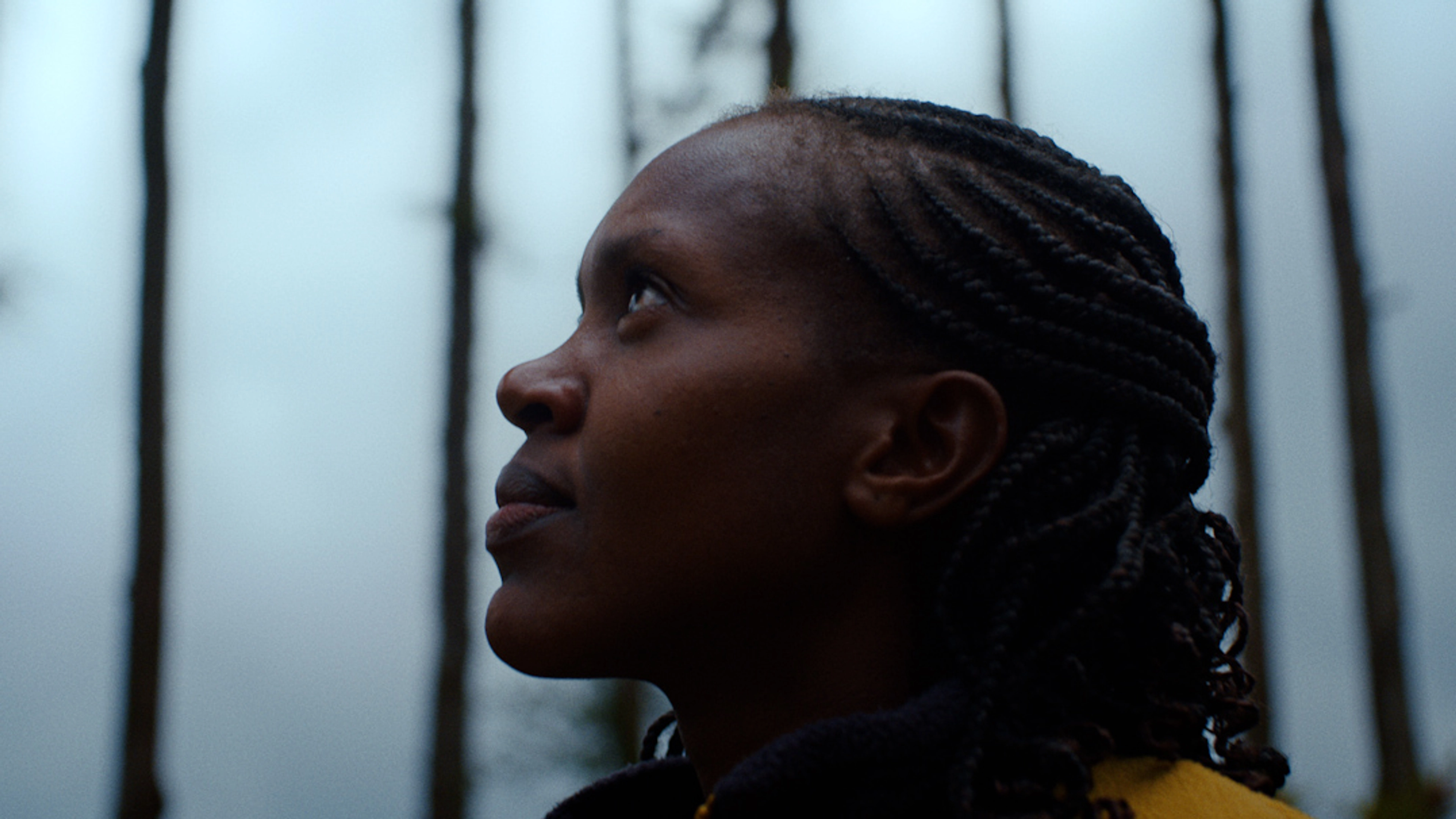Faith Kipyegon Is Ready to Make History
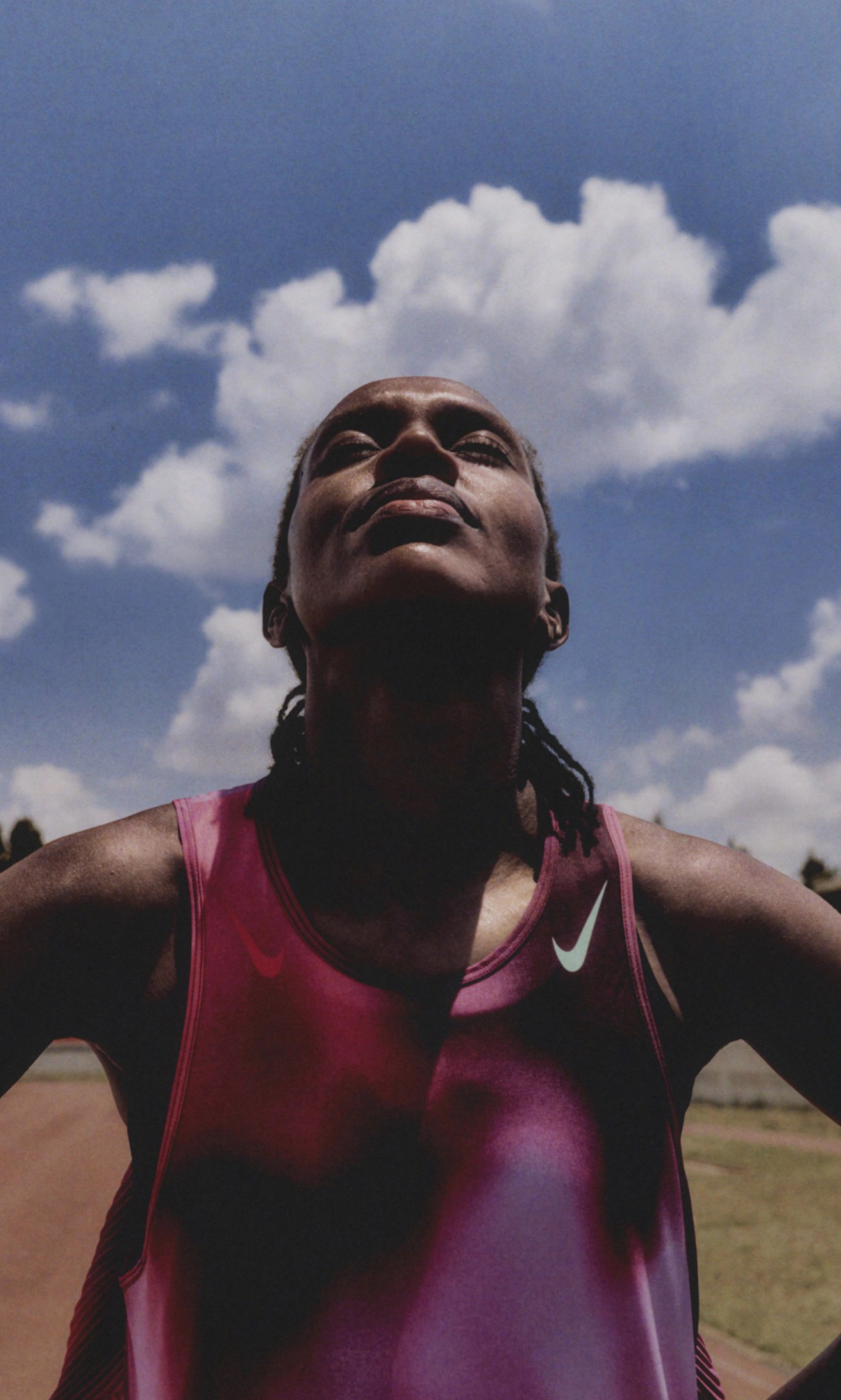
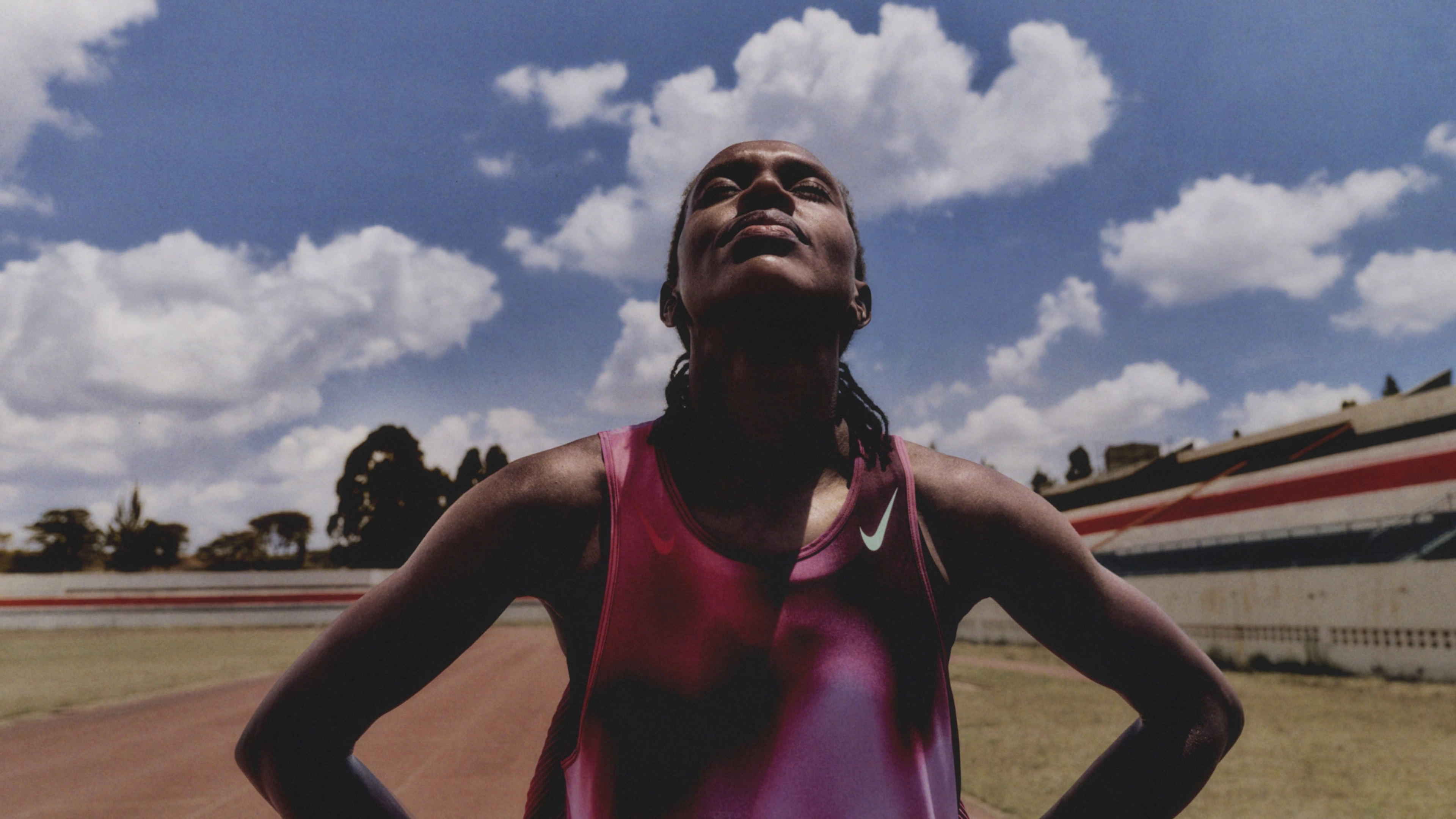
- April 23, 2025
A few minutes before sunrise on a chilly Thursday morning in mid March, a crowd of local runners waits patiently at the gates to the Global Sports Communication Camp in western Kenya to join the resident athletes on their weekly long run. The route can range from 20 to 40 kilometers, depending on where the professionals are in their training schedule. Today’s workout covers 30 kilometers of an out-and-back, the locals doing their best to match the blistering pace, splintering off along the way. At the center of this rarefied team is one of the greatest track and field athletes of all time: Faith Kipyegon.
The sky, a deep, dark violet, becomes daubed with pink as the sun creeps up. The air smells sweet with woodsmoke and eucalyptus. At 6 o’clock sharp, the runners set off, their feet pattering against the red dirt road in a flash of neon pink, orange and yellow. They run in focused silence, eyes straight ahead, yet still gesturing almost imperceptibly to one another to signal a pothole or obstruction or to shift the formation of the group. The only other sounds are the sudden noisy chirrups of birds, the occasional braying of cattle, and the thunder of traffic as it races past, another day in rural Kenya beginning in earnest. On the route, the pack of runners pass children walking to school, their outsize rucksacks bouncing up and down on their tiny backs. This, in fact, is how Faith Kipyegon — a three-time Olympic champion in the 1,500-meter, the world record holder in the mile, 15 years a Nike athlete, and a once-in-a-generation talent — got her start.
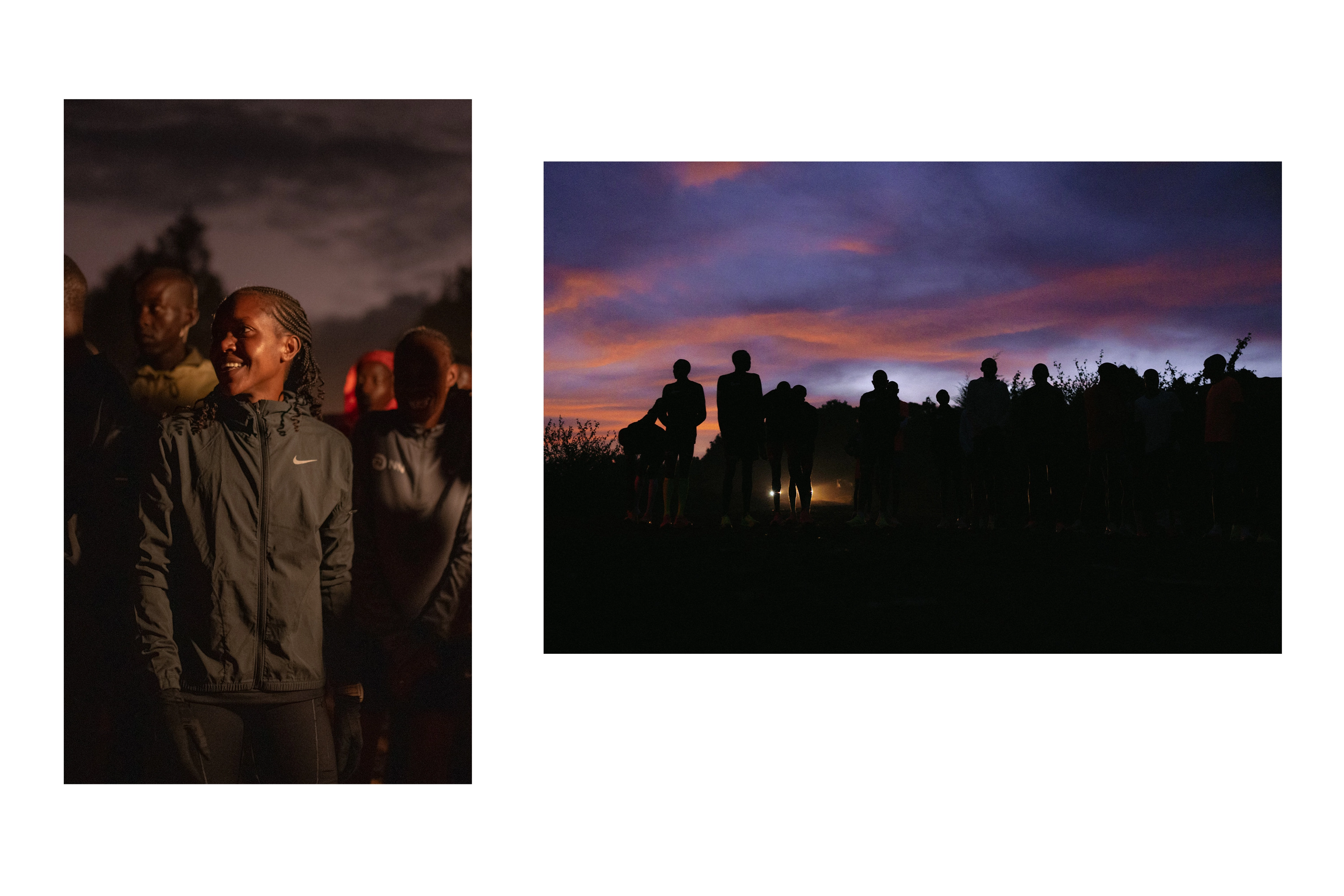
“Being a young girl from the village, I was running barefoot to school and back home. It was fun, you know? It’s still fun.”
Faith Kipyegon
“Being a young girl from the village, I was running to school and back home. It was fun, you know?” she says. It’s a few hours later, and the 5-foot-2-inch athlete is fresh out of an ice bath and wrapped in a down jacket to thaw. All around, her peers’ kits hang over bushes, drying in the warm morning sun. “It’s still fun,” she grins. As a primary school student in rural Ndababit, about an hour away from this camp, Faith covered some 10 miles a day. She’s covered many more miles since — and runs them with a Swoosh on her feet — but now her mind is focused on just one. This summer, at Paris’ Stade Charléty, she intends to become the first woman in history to run the mile in less than 4 minutes.

For women, a sub-4-minute mile has long been considered not only improbable, but physiologically impossible. For Faith, it’s precisely this label that makes breaking 4 so compelling. “I’m a three-time Olympic champion. I’ve achieved World Championship titles. The team and I were asking, what else can we achieve? Are we going for more medals?” she says. “We asked, why don't we dream outside the box? Achieve the impossible. Make it possible.”
For Faith and her Kenyan compatriots, who operate almost entirely in metric kilometers, there’s a novelty about the mile. The distance remains, as Faith calls it, “a big thing” — a milestone in every sense. She knows her North American competitors measure themselves against it from a young age, sprinting the mile as a fitness test from grade school and upward. There’s also a beautiful simplicity to racing the mile on a track: four laps, as fast as you can.
Seventy-one years ago, in 1954, British runner Roger Bannister famously became the first man to run it in under 4 minutes, hitting a time of 3:59.4. Before he succeeded, it had been considered an impossible feat for any human being. And yet in the years since Bannister broke that barrier, nearly 2,000 elite male athletes have achieved the same. Sometimes, all you need is proof.
In 2023, Faith obliterated the existing women’s mile record at the Monaco Diamond League, clocking a time of 4:07.64. The whispers began. Could a woman go sub-4? In her upcoming moonshot, she’ll attempt to shave off those 7.65 seconds, cementing her legacy.
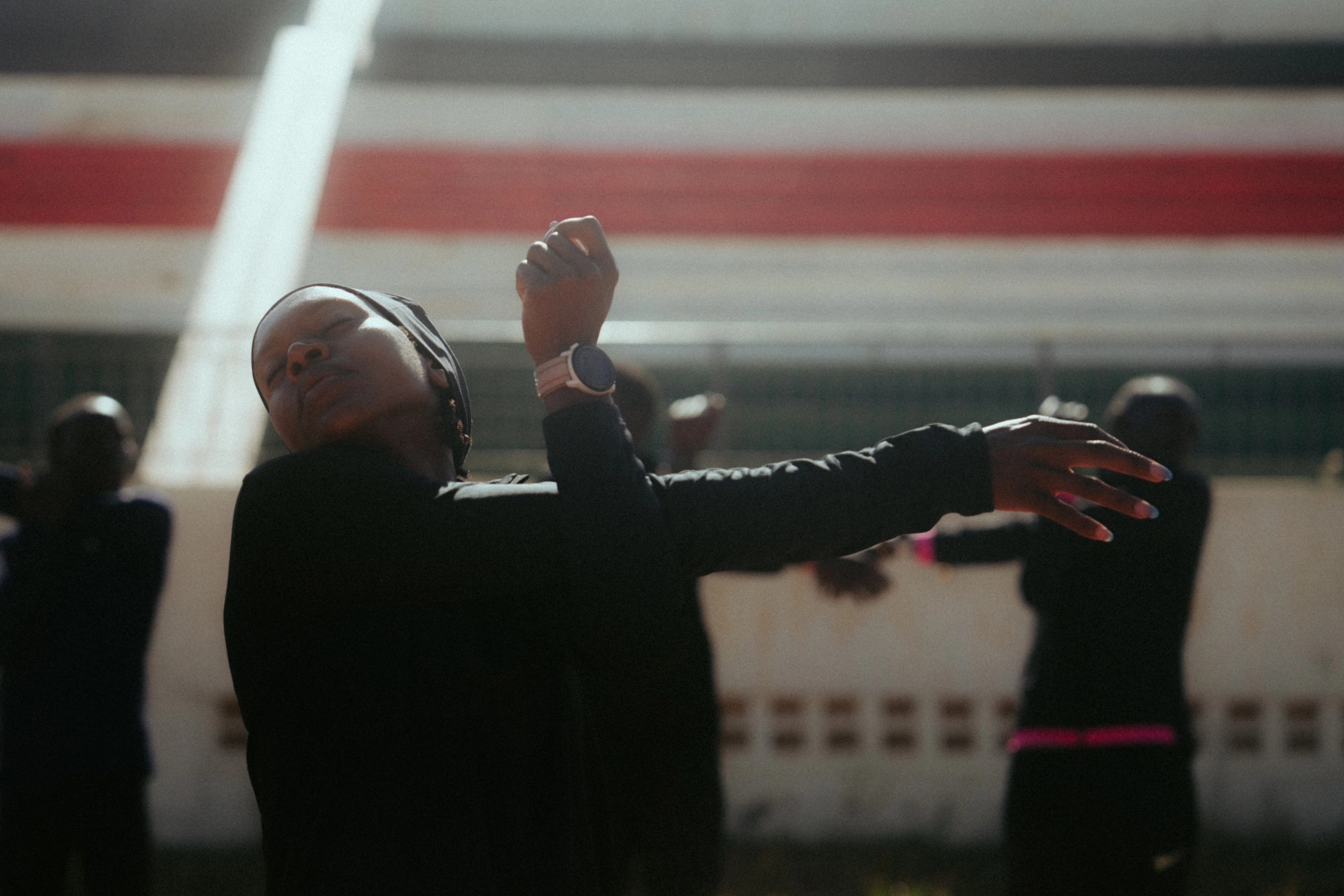
“It’s all about the mind. The physical can be healthy, but if the mind is not there, you are done. If you keep on telling yourself that you can do it, you can do it.”
Faith Kipyegon
How? Anybody who’s ever raced the mile — particularly while redlining their effort the entire way — knows the gap that divides 4:07.64 and 3.59.9 is chasmic. To help clear it, Nike is considering every factor and advantage, including innovations in apparel and footwear, as well as location, aerodynamics and efficiency. Faith is focused on the internal. First, she’ll work to overcome the psychological barriers. “It’s all about the mind,” she says. “The physical can be healthy, but if the mind is not there, you are done. If you keep on telling yourself that you can do it, you can do it. You have to dream of training in a healthy way. Dream of being injury-free. Dream of how the event will look on the day, how you will be on the day. You can’t stop dreaming.” Second, she’ll build on the solid foundation she established in Monaco — with a little help from YouTube. “I think of how I broke the 1-mile world record in Monaco, and that has really helped me to review how fast I was. When you watch yourself running the same race, you can get an idea of what you are going to change.”
Faith has another formidable tool: the unwavering support and guidance of her mentor and training partner, Eliud Kipchoge, who achieved his own “impossible” feat in 2019, running 1:59:40 to break the 2-hour marathon barrier. Faith and Eliud have known one another for 10 years and trained together at camp for six, since Faith returned to work after giving birth to her daughter. Their relationship is like that of siblings — warm, playful, respectful, close. They are alike in many ways: focused, disciplined, ambitious. And different in others: Where Eliud is almost ascetic in his contemplation, Faith is vivacious and animated. What’s immediately clear in watching their interactions is the certainty Eliud has that Faith is the athlete for this moment. “What's special about Faith is that she is an abundant thinker,” he explains in his soft tone, his gaze intent. “She can absorb any goal. She’s a big dreamer, she respects everybody, she communicates with cohesiveness. She’s able to put a lot of ideas in a bag and shake it and come out with the best one. Faith is the woman to take on this challenge because she’s open to trying.” He smiles mischievously: “In life they say if you are thinking big, you need to wake up earlier and go to bed later. But in sport, if you are really a big dreamer, you train harder and smarter. And Faith is training well.”
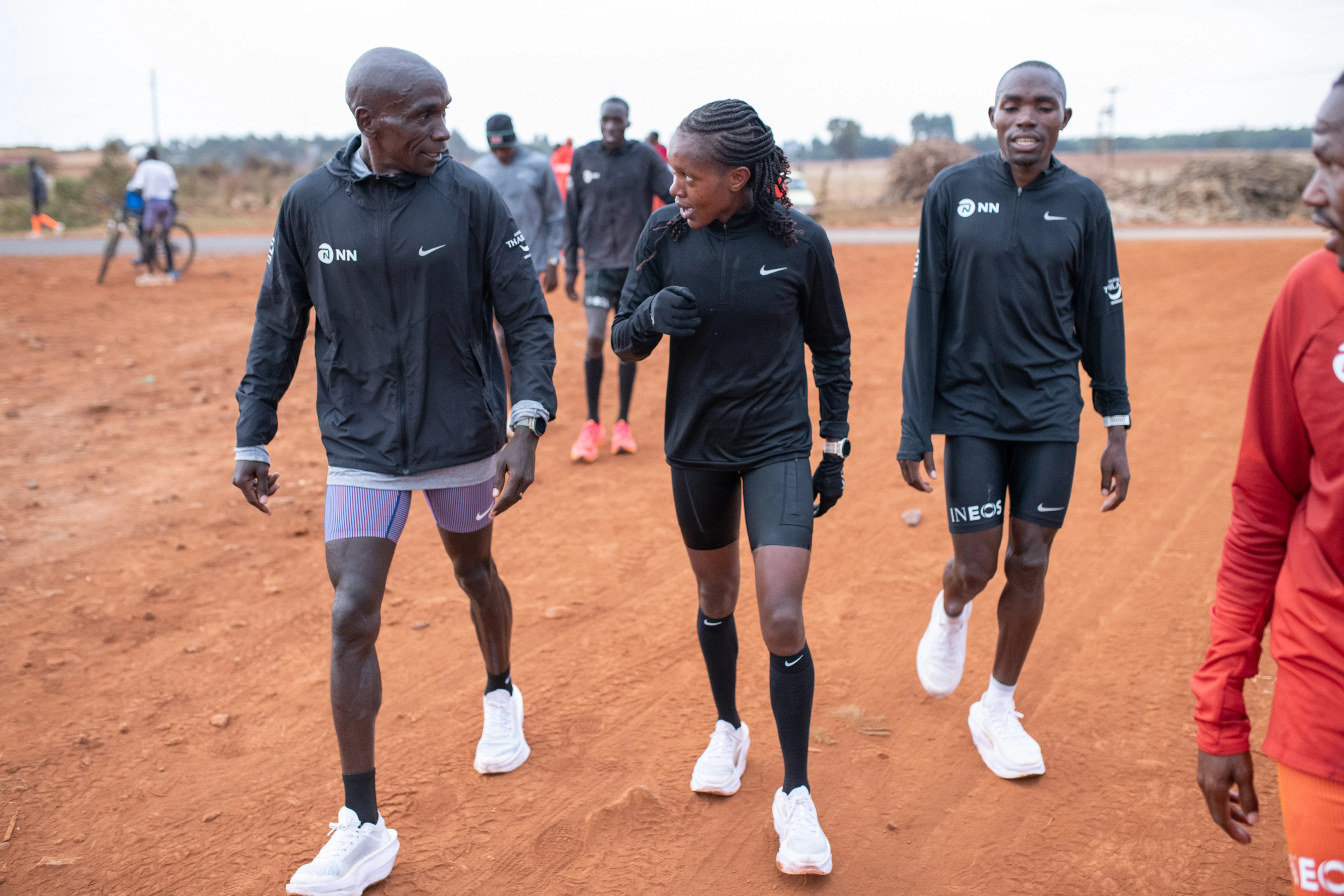
"What’s special about Faith is that she’s a big dreamer. She’s able to put a lot of ideas in a bag and shake it and come out with the best one. Faith is the woman to take on this challenge because she’s open to trying.”
Eliud Kipchoge, Faith's Mentor

Eliud sits in a blue plastic lawn chair in the lush green garden at camp. All around us grow fruit trees, flowers and bushes with hand-written signs at their bases. Some mark achievements, medals and records; others bear the names of the supporting family, friends and team members who planted them during a visit. (The Nike team keeps up a friendly competition about whose tree is flourishing — and whose is looking a little worse for wear.) As well as affording much-valued shade, these trees represent growth, fruition and the slow but extraordinary progress that can be made with sustained daily effort, says Eliud. Like the interior walls at camp, the garden is laden with signs and posters emblazoned with motivational quotes of all kinds. The positive mental attitude they invoke for Eliud, Faith and their peers is not only important to the training, it is the training. “What makes the psychological part fitter is to make the physical part fitter,” he adds, alluding to Faith’s process. “If you train in a good way, in a hard way, in a happy way, and you are accomplishing everything in training, then the psychological part actually is already fit. You train the body and the mind at the same time.”
Faith and Eliud share a phenomenal coach in Patrick Sang, who has worked with Faith for six years and Eliud for 23. From his point of view, the goal of running a mile in less than 4 minutes is a natural progression for Faith, an extraordinary athlete whose talent and ambition are tangled up with her irrepressible spirit. “Whatever we do in life is a continuum of what we started some time back,” he says. He lists Faith’s accomplishments of just the past 18 months: a world record Olympic gold, a third world title, the world record in the mile. “If you achieve what she’s achieved, of course you get to a point where you ask, what if? Then the question becomes, what if you try? We’re in the process now of trying, and this is the thing that is worth trying. She is convinced that it’s within her reach, and with the proper support coming from all the systems around her, I believe it’s possible.”
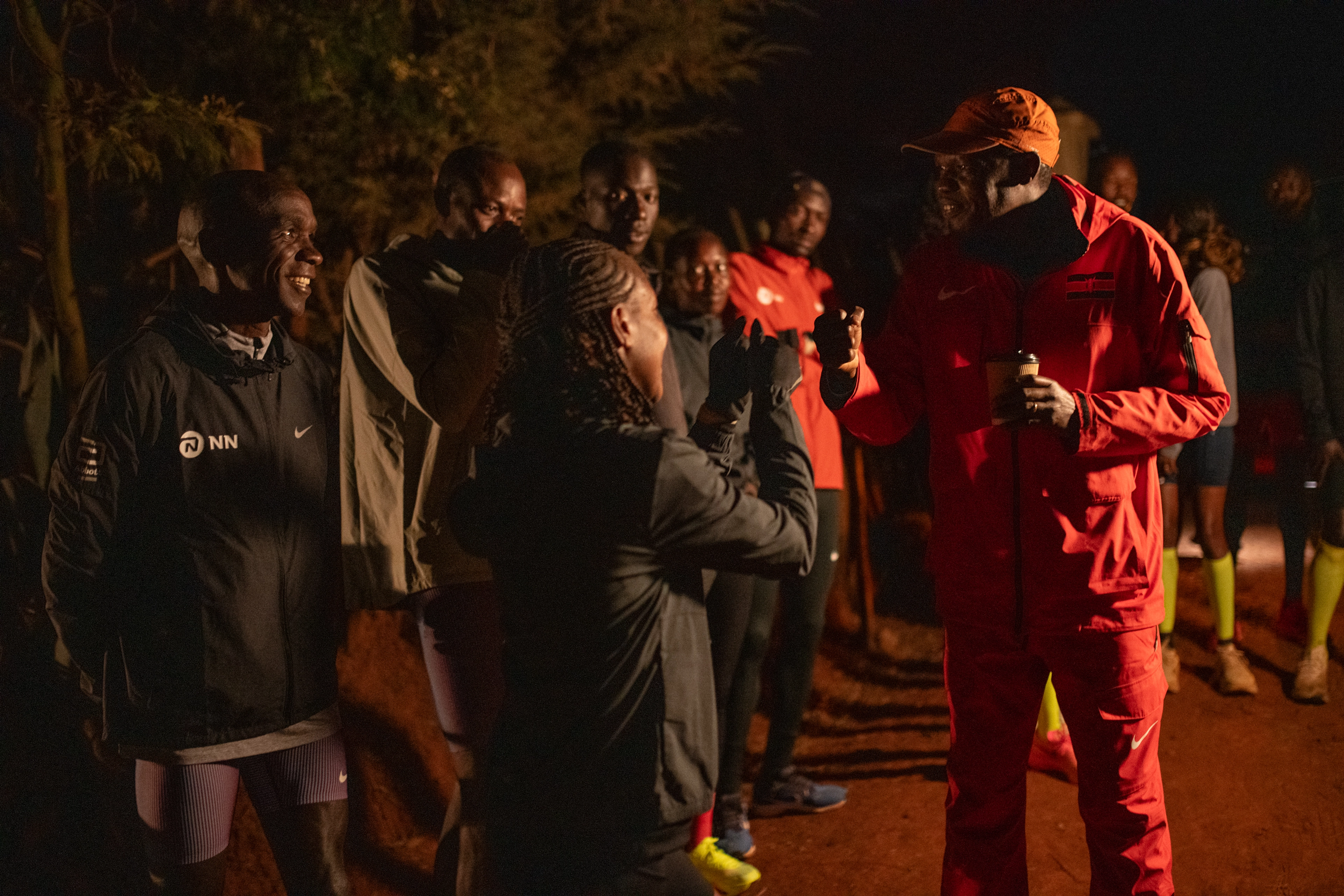
“If you achieve what she’s achieved, of course you get to a point where you ask, what if? She is convinced that it’s within her reach, and with the proper support coming from all the systems around her, I believe it’s possible.”
Patrick Sang, Faith's Coach

The GSC Camp is a modest, quiet place. The only soundtrack is that of birdsong and chatter, the occasional peal of laughter. Most of the athletes sleep in shared dormitories. They divide chores and other domestic duties among themselves — cleaning, mopping floors, organizing trash — the rota making no exceptions for medals or tenure. In the small gym, exercise balls are piled in the corner next to weights, a stack of wooden stools, a treadmill and an exercise bike. Outside, by the physiotherapy room, two huge blue plastic buckets — the ice baths — sit next to a freezer full of ice. The athletes using these facilities are the best in the world — the greatest, even, of all time. They have access to every convenience, every luxury, the newest technologies and innovations. But what they need to be at their peak is to forgo much of that from Monday to Saturday. Week over week, they choose to harness their implicit talent through focus, discipline and teamwork.
The teamwork is key, and a resolutely Kenyan value. When Faith won her first Olympic gold medal in Rio in 2016, she eschewed grand rewards in favor of having electricity installed for the village she grew up in. “Becoming an Olympic champion changed my life, and at the same time it changed the community’s life,” she says of that moment. “When you benefit, the community also benefits.” That same community emphasis guides the athletes here every day. “My favorite thing about being in camp is the teamwork,” she adds. “Teamwork is really what drives us to achieve what we have achieved.”
Eliud is a driving force behind this approach. “We are building a team by defining teamwork as a group of people who trust each other,” he explains. “We build it with good values, good words, good training, good living environment, good relationships. With anything that brings humanity. Every day is a day for building teamwork. Faith can win as an individual, and the success belongs to the whole team.” It’s this focus on teamwork that leads shy newcomers at camp to take up leadership positions there, or the runners to shift their formation over the course of the long run, he explains. “In training, we’re trying to give a chance to everybody. Running in front gives you confidence that you can lead other people. So we are rotating to give that chance and that morale to everybody. Go in front, get that motivation.”
On Friday morning, the camp’s athletes line up yoga mats and physio balls in the garden for their weekly strength and conditioning training. They are guided by their assistant physiotherapist, Eric Muthuri, but there’s no question that they fuel one another, focused and united in their effort. As the tempo creeps up, Faith, grinning, catches the eye of some of her peers; together they giggle and protest. This workout takes place some 8,800 feet, or 2,700 meters, above sea level in Kenya’s Great Rift Valley, with altitude that encourages the breath out of the lungs rather than into them. But otherwise the routine is not visibly different from one at a community gym in any other city. When it finishes, the athletes will return to their dormitories to read, nap or sit quietly outside together, mentally preparing for the next workout. Rest and recovery are crucial.
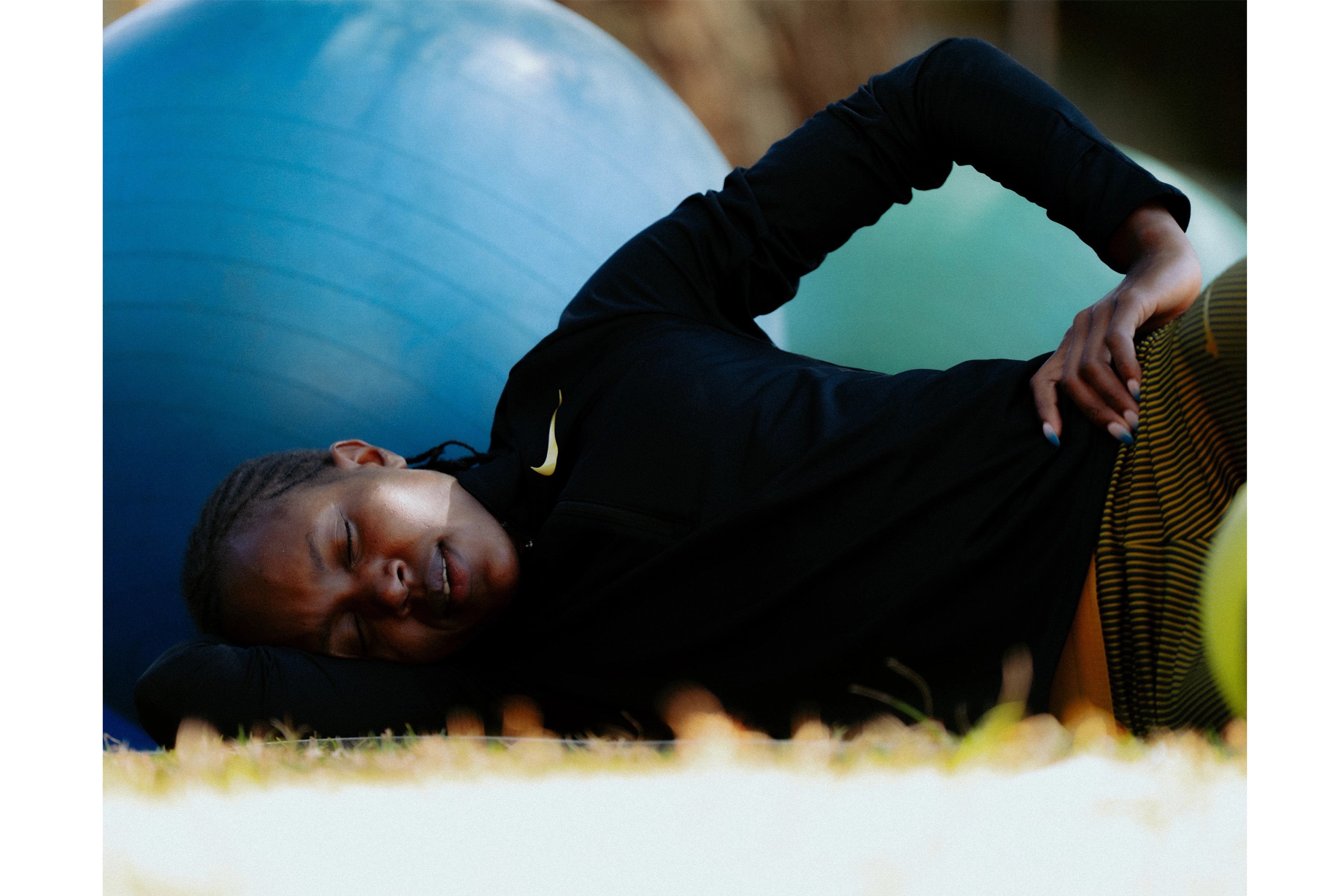
While Faith, her coaches and her mentor push on toward her audacious goal from their base at camp, another supporting team is hard at work preparing for the upcoming attempt elsewhere. In Beaverton, Ore., Nike’s teams are honing innovations in footwear and apparel design and testing using a 3D mold created from scans produced when Faith visited the Nike Sport Research Lab in January. Her visit also included body mapping, baseline testing, VO2 max testing, and conversations about color palette and design direction. There will be no stone left unturned when it comes to improving her performance, her apparel and footwear, or aerodynamics on the day. She sees, feels, appreciates it all. “I don’t even know how to talk about Nike — they have supported me in everything. Since 2010! Since I was so young in my career.”
As for the attempt itself, it’s set for June 26, at Stade Charléty in Paris, on the same track on which Faith set new world records in the 5,000-meter in 2023 and the 1,500-meter in 2024. Contributing factors include the weather (no wind is preferable, naturally, and Faith favors afternoon sunshine) and the crowd (loud). But by the time she steps on the track, Faith explains, she’ll already have broken 4 minutes hundreds, if not thousands, of times — in her head. “I run through it psychologically, in my mind: Today is the day of the event, and I have to do this, and this, and this,” she says. “This really gives me energy to wake up in the morning and go for training.”
“I don’t even know how to talk about Nike — they have supported me in everything. Since 2010! Since I was so young in my career.”
Faith Kipyegon
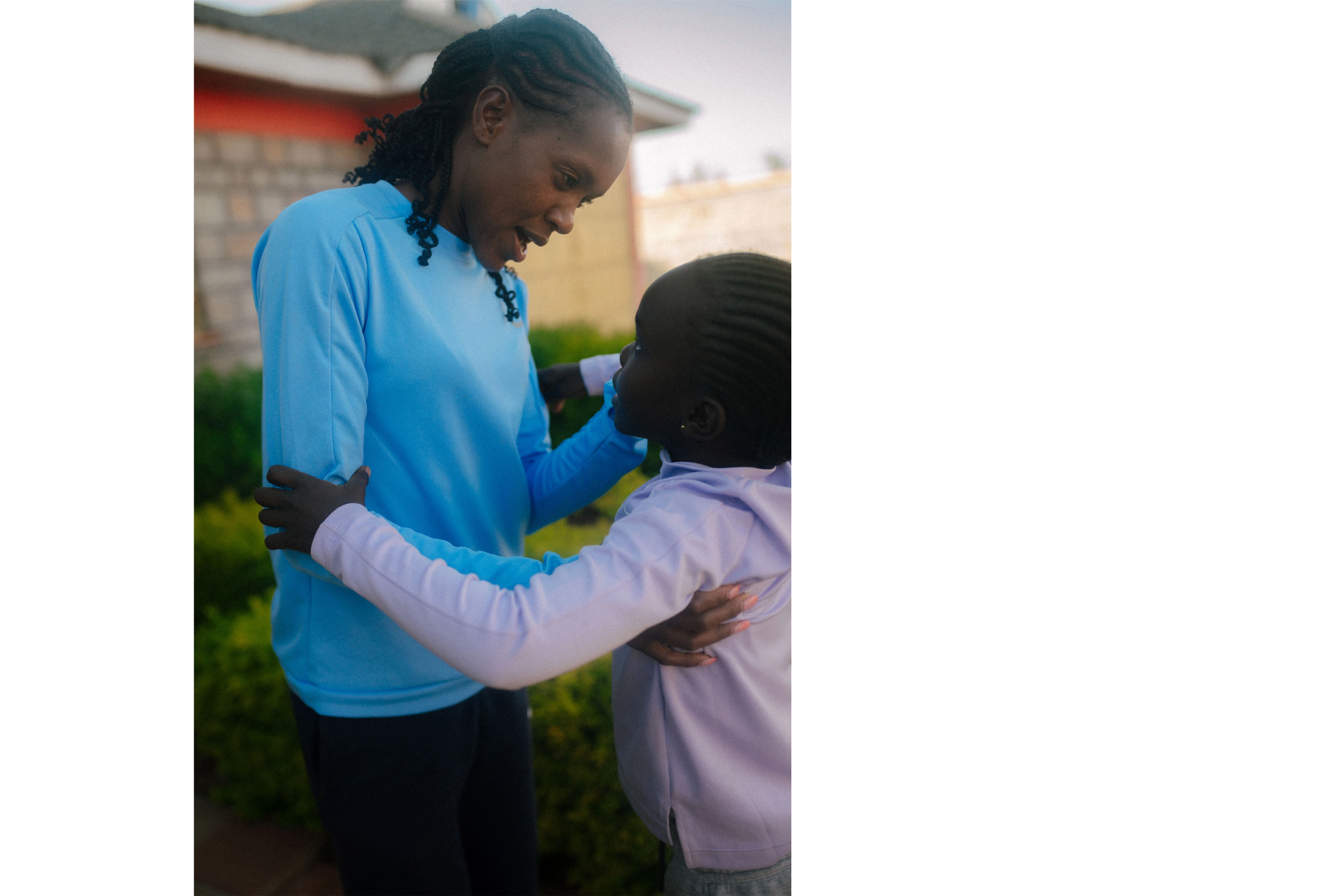
Another prime driver will be the grinning face of her daughter, Alyn, waiting for her at the finish line. “Becoming a mother has changed my entire mental [attitude],” explains Faith, “firstly because when you are training, you have left somebody behind. I come to stay at camp from Monday to Saturday, and I just have two days with her. Now that she has grown, she understands what I am, she understands what I’m doing, that I have to push myself to hit these great goals. She knows running is not easy — you have to train and focus. She knows that when Mama is going to race, it’s a serious competition; she waits until the finish line, and then she can celebrate.” While the time Faith spends away from home is not easy, she sees the power of setting this example for her daughter while doing her part to build a more equitable world for her to grow up in. “Motherhood has shown me a lot,” she says. “That is the mentorship we have to give to our children — that you have to engage yourself in anything, whatever you choose. You have to motivate your child, you have to show your child the way. You have to go out to push barriers. And this is what I do.”
Alyn is not the only one. For every step of her training runs, every early morning rise or ice bath, Faith has women and girls in mind. “I think this attempt could open the minds of women,” she says. “I hope they will be inspired to know that what a man can do, a woman can do. You can dream and make your goals happen. Boundaries are there to be pushed. This is the way to go as women, to push boundaries and dream big.”
“Motherhood has shown me a lot. You have to motivate your child, you have to show your child the way. You have to go out to push barriers. And this is what I do.”
Faith Kipyegon
It’s Saturday morning at Kipchoge Stadium in Eldoret, and Faith is doing her weekly track workout. Kenya’s equatorial sun is high and unrelenting, casting no sliver of shade over the many local and visiting athletes as they run their laps. Its intensity has baked the track to concrete. It’s serviceable and beautiful.
Stopwatch in hand, coaches guide Faith through her sprints, and it’s here and now that everybody watching is reminded just how exceptional she is. Her hands pull into her chest in her familiar and highly efficient form, and she darts around the track in a blur, her stride synchronized perfectly with that of Bernard Soi, her pacer and training partner of 15 years. Even running into the wind, she’s hitting 43 seconds for her 300-meter repeats, a pace many elite male athletes spend their whole careers working toward. Her workout concludes and, visibly spent for perhaps the first time this week, she collapses on the grass, surrounded by her teammates, smiling as she gasps for air.
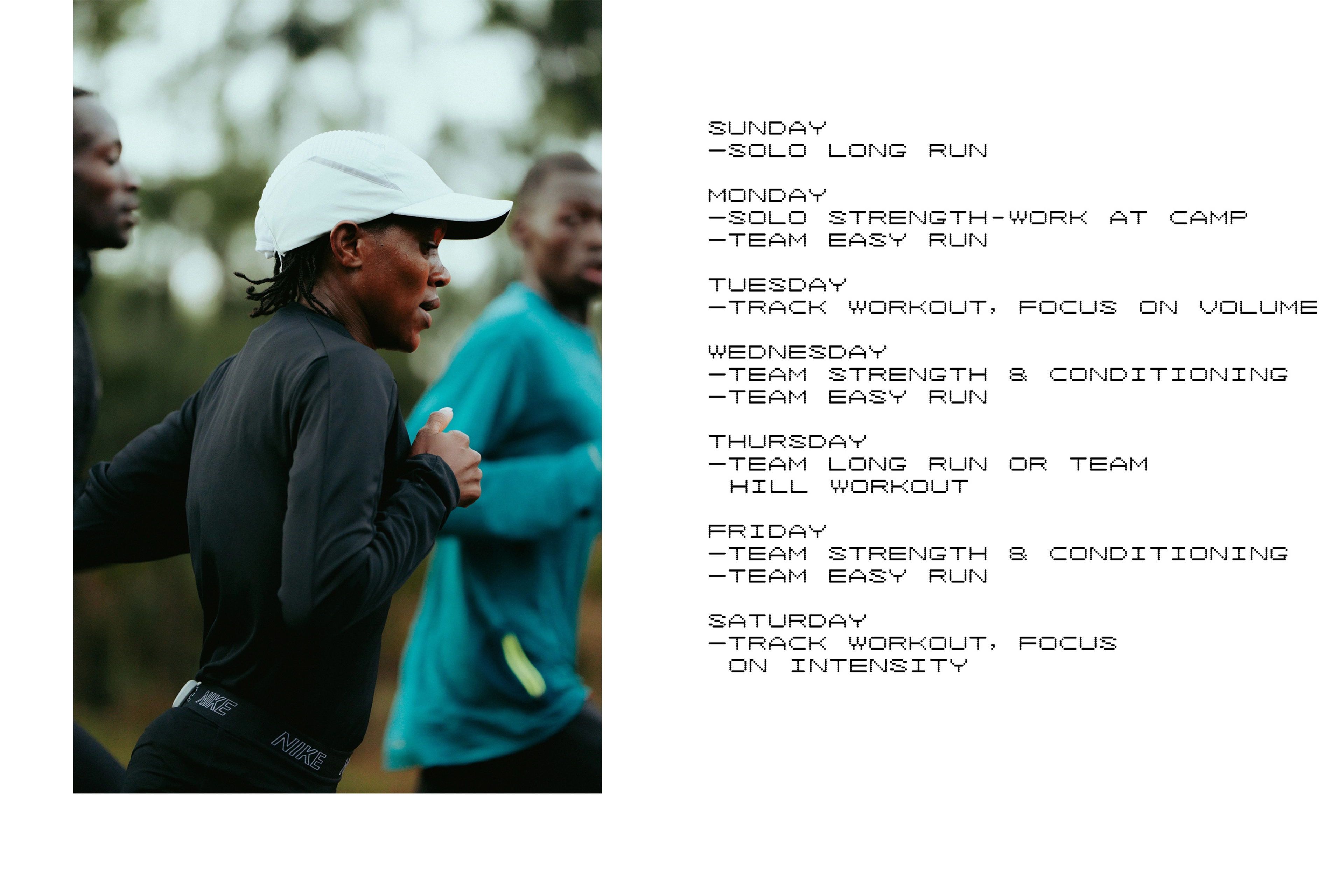
Faith's weekly training regimen — what it takes to run her fastest mile.
Faith Kipyegon vs. the 4-Minute Mile — the official name of the attempt — is tempting to think of as a future moment. One day, 4 minutes, and bang. But it’s this; the attempt has already begun. It is the weekly long runs, the strength and conditioning training, the cool early mornings in Kenya’s forests and the unforgiving hot days on the track. It’s the hours spent with her team, Monday to Saturday, mopping the floors or baking fresh chapatis. It’s in the researching, the innovating, the strategizing, the planning. Most of all, it is the dreaming — the end-to-end simulation that she has run so many times already in her mind. The total confidence in her ability, her focus, her training. She has faith, and we have her.
The day itself, the starting line? That is the celebration. Faith, we’ll meet you there.
